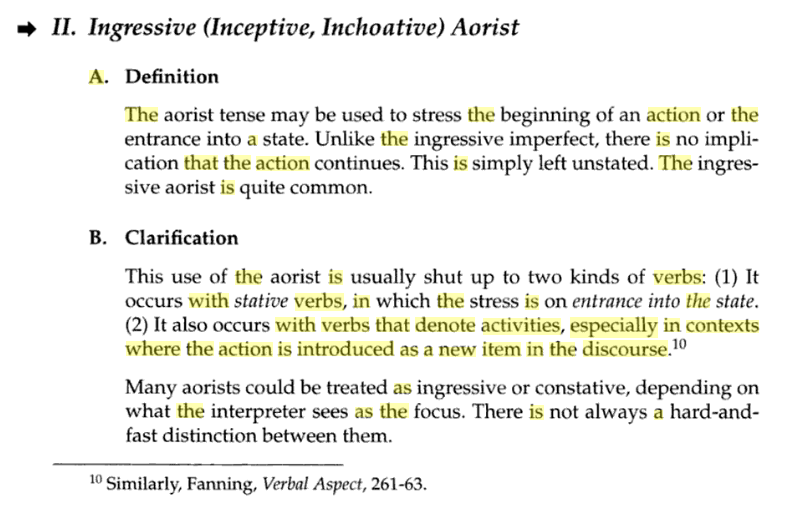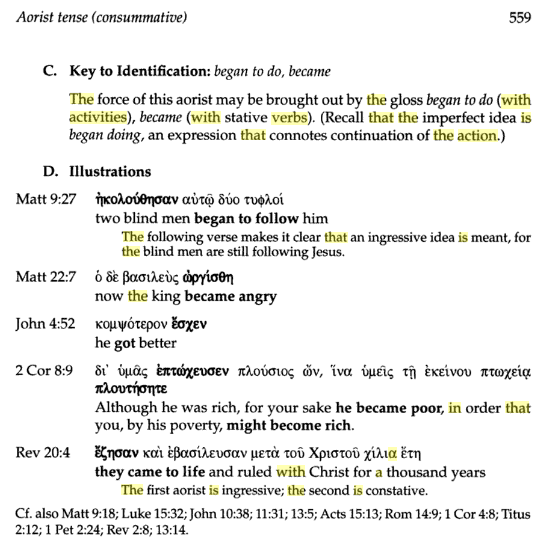http://biblehub.com/interlinear/luke/21-32.htm I was having an argument with my friend about this verse and he is saying the aorist tense in Greek means that the last word in this verse does not necessarily mean everything has completed just that everything has started to happen: 1096 [e] genētai γένηται . shall have taken place V-ASM-3S
He got this from looking up the aorist tense in the Merriam Webster dictionary: https://www.merriam-webster.com/dictionary/aorist "an inflectional form of a verb typically denoting simple occurrence of an action without reference to its completeness, duration, or repetition"
However when I look at aorist on this site: http://www.ntgreek.net/lesson22.htm it says: "In English, the tense we use for this is the simple past. If I say, I hit the ball, I do not indicate the action was ongoing or repeated. . . . Consider the first of these pairs of sentences. If I say I was hitting the ball, that suggests I mean to describe a process, perhaps an iterative process, perhaps repeated hitting: I was hitting the ball well yesterday until the 14th hole. But if I say, I hit the ball well yesterday, it may be that I hit the ball only once, or it may be that I hit the ball several times. I conceive of the action as if it were punctiliar, but that doesn't mean it was punctiliar. I may say, I attended college. Most likely, this happened over a period of years. But I describe the action as a single, simple event without reference to the duration."
To me, it just seems to not describe the duration or whether it was repeated it doesn't mean that the action wasn't complete. So does it mean everything has happened or possibly just that everything has started?
EDIT: could this imply that the "all things" talked about here have multiple fulfillments? What are the major variations of the "double-fulfillment" hermeneutic?

